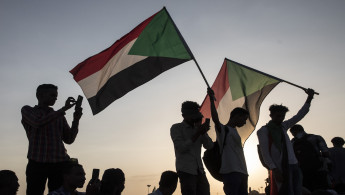US to name first ambassador to Sudan after two decades absence
The United States said on Wednesday it would name an ambassador to Sudan for the first time in 23 years as it welcomed the country's new civilian leader.
The US hailed early steps taken by Prime Minister Abdalla Hamdok to "break with the policies and practices of the previous regime", whose ties with extremists and brutal domestic campaigns had made Sudan a pariah in the west.
Secretary of State Mike Pompeo announced that the United States would appoint an ambassador to Khartoum, subject to Senate confirmation, and that Sudan would restore full-level representation in Washington.
"This is a historic step to strengthen our bilateral relationship," Pompeo wrote on Twitter.
In an accompanying statement, Pompeo praised Hamdok's civilian-led transitional government for launching "vast reforms".
Protest leaders and the military signed a landmark power sharing deal in August after months of negotiations punctuated by violence, providing for a transitional government to replace the regime of ousted President Omar al-Bashir.
As prime minister, Hamdok has "demonstrated a commitment to peace negotiations with armed opposition groups, established a commission of inquiry to investigate violence against protestors, and committed to holding democratic elections at the end of the 39-month transition period", Pompeo said.
|
|
Hamdok, a British-educated former diplomat and UN official, is the first Sudanese leader to visit Washington since 1985.
However, he had a low-key welcome, meeting the State Department number-three, David Hale. Both Pompeo and President Donald Trump were away on foreign travel.
Hamdok also met with senior lawmakers and Treasury Secretary Steven Mnuchin, who said he welcomed the new government's "stated commitment to respecting human rights, fighting corruption and reforming Sudan's economy".
The Sudanese prime minister also discussed religious freedom and diversity with Samuel Brownback, US Ambassador at Large for Religious Freedom.
"Attempts by the previous regime to create a rift among the people of Sudan and divide them on the basis of religion and faith have failed," Hamdok said in a tweet. "The previous regime was notorious for using misguided religious sentiments as a tool to manipulate people and prolong the life of the regime, but the Sudanese people triumphed over these twisted ways. That era is now over."
State sponsor of terrorism
The United States had tense relations with Bashir, who took power in 1989 and embraced Islamism, including welcoming Al-Qaeda leader Osama bin Laden.
|
|
After the 1998 attacks on US embassies in Kenya and Tanzania, the United States fired a missile that destroyed a major pharmaceutical factory in Sudan over allegations, fiercely disputed since, that it produced a nerve agent.
It was during the early years of Bashir's nearly 30 year rule that the United States classified Sudan as a state sponsor of terrorism, a designation that the new government calls a severe impediment to foreign investment.
US officials, while voicing sympathy for Sudan's continued appeals, say that removal of the designation is a legal process that will take time.
In talks at the US Congress, lawmakers pledged support for the new government but said Sudan must reach a settlement with families of the victims of the embassy bombings as well as the 2000 attack on the USS Cole, allegedly backed by the then-regime.
Lawmakers "raised lingering concerns about the need for financial transparency within the security sector and about remaining elements of the old regime who may still support international terrorism," said a statement by the House Foreign Affairs Committee.
Hamdok addressed the issue in a statement from his office.
"A key program of the new transitional government is to fight terrorism, and in order to have stability in the region there has to be a regional and international program to fight terrorism," he said.
Tensions also soared over Bashir's scorched-earth crackdown in the parched western region of Darfur, a campaign that the United States described as genocide as it pressed for the prosecution of Bashir.
Follow us on Twitter and Instagram to stay connected





 Follow the Middle East's top stories in English at The New Arab on Google News
Follow the Middle East's top stories in English at The New Arab on Google News


